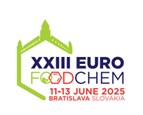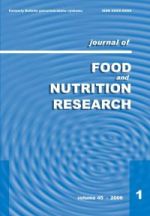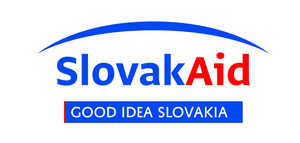Scientific journal
Journal of Food and Nutrition Research
Summary No. 2 / 2017
Kujundžić, D. – Režek Jambrak, A. – Vukušić, T. – Stulić, V. –
Near-infrared spectroscopic characterization of steviol glycosides extracted from Stevia rebaudiana Bertoni using high-power ultrasound and gas-phase plasma
Journal of Food and Nutrition Research, 56, 2017, No. 2, s. 109-120
Anet Režek Jambrak, Department of Food Engineering, Faculty of Food Technology and Biotechnology, University of Zagreb, Pierottijeva 6, 10000 Zagreb, Croatia. Tel:
Received 26 January 2017; 1st revised 1 March 2017; accepted 1 March 2017; published 4 May 2017
Summary: The purpose of this study was to examine the possibility of extraction of steviol glycosides from dried leaves of Stevia rebaudiana by application of high-intensity ultrasound and gas atmospheric plasma, in which water is used as a solvent. In contrast to Soxhlet extraction (by water), an increase in the yield of average value of steviol glycosides was achieved by ultrasound (59 %) and gas plasma (43 %). Highest effect was at treatment for 30 min, the amplitude of 90 µm, and a temperature of 45 °C. After gas plasma treatments, the average yield of steviol glycosides (101.34 g·kg-1) was slightly lower than that after the application of ultrasound. This study also established a near-infrared spectroscopy (NIR) model for direct and rapid analysis of the expected content of steviosides. NIR spectroscopy showed the capacity that, combined with multivariate analysis tools (principal component analysis, partial least squares regression), was successful in grouping data.
Keywords: steviol glycosides; near-infrared spectroscopy; gas-phase plasma; high intensity ultrasound; principal component analysis; partial least squares regression
Download:
(pdf, 903.02 Kb, 2636x)










